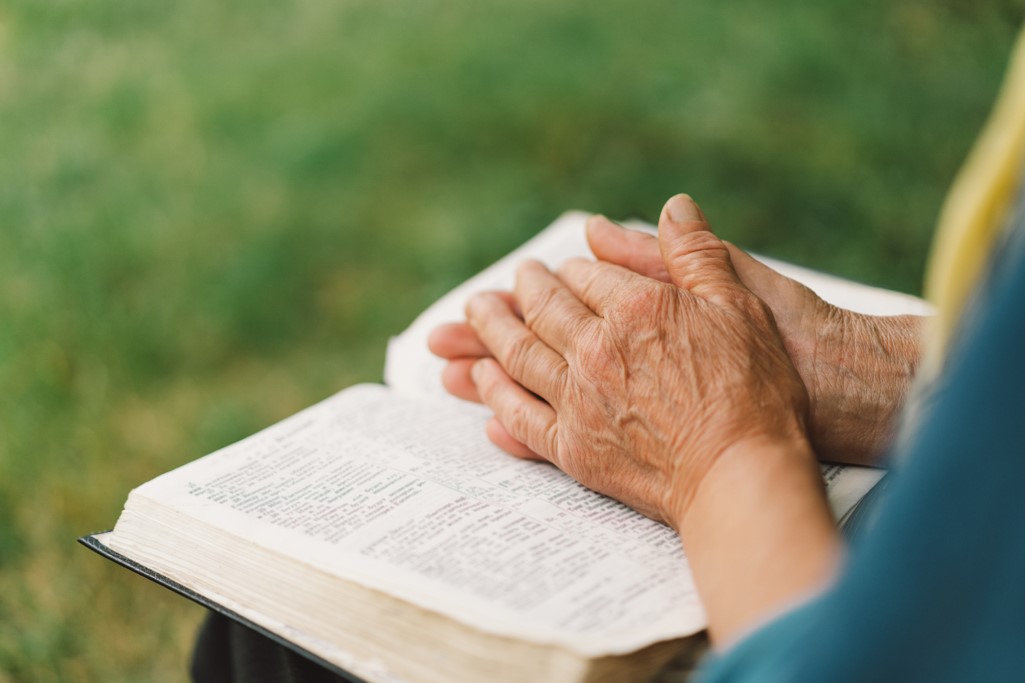Our Father . . .
Matthew 6:9
Two men were boasting to one another about their Bible knowledge. One said to his friend, “I bet you don’t even know the Lord’s prayer.” His friend replied, “I certainly do.” The first man shot back, “Then let me hear you say it.” His friend quoted, “Now I lay me down to sleep. I pray the Lord my soul to keep. And if I die before I wake, I pray the Lord my soul to take.” His buddy conceded, “You sure fooled me. I didn’t think you knew it!” We think we know a lot of things, but we often don’t know the full truth. This is certainly true when it comes to the subject of prayer.
In the model prayer, Jesus taught His disciples to pray, “Our Father . . .” (Matt. 6:9). In the Old Testament, God Almighty is revealed as the lawgiver, but Jesus taught us to appeal to God as our Father. Too often believers view God through the lens of Sinai, where the law was given, rather than Calvary, where God’s holiness was reconciled with His compassion. At the cross, truth and mercy kissed one another (see Ps. 85:10). God’s lawful justice was satisfied when Christ mercifully bore our sin and its accompanying punishment on the tree. Jesus took our sin upon Himself and paid our debt. He became what we were (sin) so that we could become like He is—righteous! Calvary was the game changer. Our history and our handicaps were absorbed by God’s Son and replaced with new identities and destinies. We can never measure up to the sacred standard in our own strength. But the power of the indwelling Christ has replaced our weakness and wickedness. The moment we were born again, we became God’s children.
The Bible tells us that since we have received the Spirit of adoption, we now cry, “Abba, Father” (Rom. 8:15). In the simplest terms, Abba means “Up, Daddy, up.” Only a person with childlike faith will cry out to God in complete trust, expecting a lift from his Father’s loving arms. By grace through faith we are adopted into the family of God.
Jesus said, “I will not leave you comfortless” (John 14:18). The Lord was speaking of the Comforter to come—the Holy Spirit, who is our intercessor, consoler, and advocate. Jesus went on, “I will not leave you comfortless: I will come to you” (John 14:18). “Comfortless” is translated from the word orphanos, which means to be “bereaved as an orphan” or “parentless.” Jesus was saying, “You are not a spiritual orphan. You are not on your own. You are not left to fend for yourself. You are a child of the Most High God. You have been adopted—God is now your Father.” Recognizing God as our Father is an important protocol for prayer.
A married couple adopted a child from an orphanage. As the child settled into his new life, his classmates discovered that he was adopted, and they mocked and ridiculed him. The adopted child put his classmates in their place when he said, “Of the hundreds of children at the orphanage my parents could have picked, they chose me. But your parents got stuck with you!”
When we approach God in prayer, we are coming as:
- Family members, not foes
- Sons, not strangers
- Children, not criminals
- Intimates, not enemies
W. Tozer said, “What comes into our minds when we think about God is the most important thing about us. . . . The most portentous fact about any man is not what he at a given time may say or do, but what he in his deep heart conceives God to be like.” Those who are born again see God as their Father. Viewing God paternally is vitally important, as it signifies the affection of a family relationship. Regardless of our earthly father, our heavenly Father is there for us. He knows us. He accepts us. He loves us. He is for us. He likes us. He is available to us. He took the initiative to pay the penalty our sin deserved. We must see God from this relational point of view in order to pray effectively. He is our loving Father in heaven, and we must approach Him as Christ instructed: “Our Father which art in heaven . . .”
Reflection
- The way we view God is the most important thing about us. Our conception of God is the foundation for all of life.
- God’s holiness and love were reconciled at Calvary: “Mercy and truth are met together; righteousness and peace have kissed each other” (Ps. 85:10).
- God has adopted us into His family: “Ye have not received the spirit of bondage again to fear; but ye have received the Spirit of adoption, whereby we cry, Abba, Father” (Rom. 8:15).
- Jesus did not leave us as orphans to act on our own. Saved people belong to God’s family.
Application
- Have you repented of your sins and placed your confidence in Christ as your Savior? If not, believe the gospel, which states that Christ died in our stead, was buried, and rose again (see 1 Cor. 15:1–4).
- Ponder the truths of the gospel. Drink deeply at the fountain of grace, realizing that Jesus bore your sins. Spend time thanking God for the great exchange—Christ took your sins so that you could have His righteousness.
- Take some moments to acknowledge that God is your Father and that you are His child.
- Daily confide in your heavenly Father about the concerns of your heart.
This chapter was taken from “Approaching God’s Throne: Biblical Protocols For Prayer” by Harold Vaughan.




